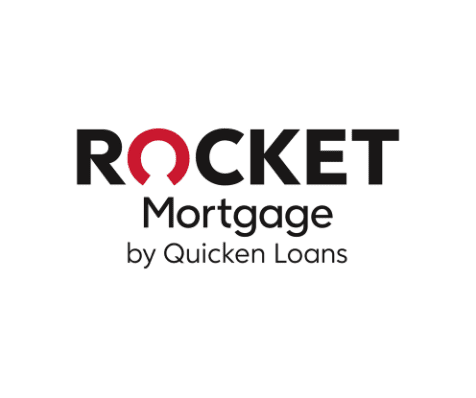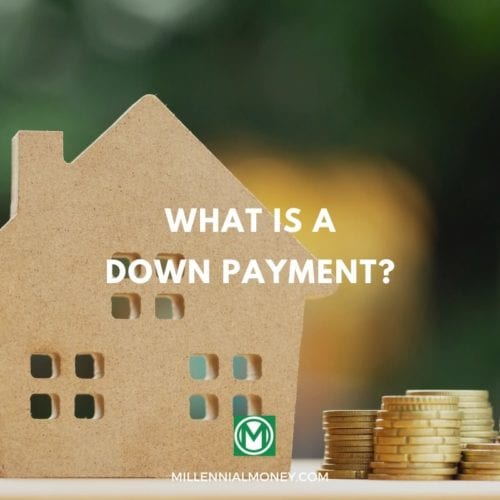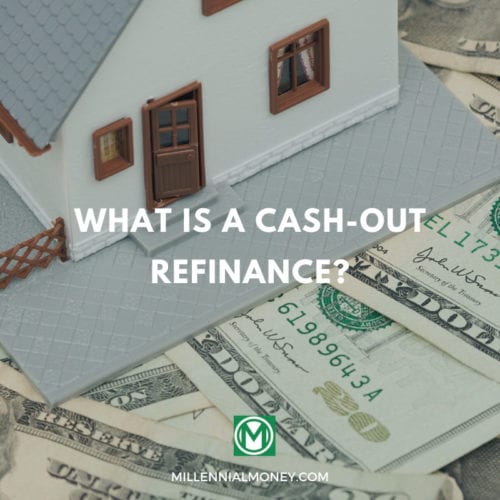It’s a position nobody wants to be in: You need to make expensive repairs on your mobile home, but you just don’t have the cash.
One option is to take out a home equity loan against your mobile home. But before you do, it’s important to know the implications.
Here’s how to get a home equity loan on a mobile home.
How to Get a Home Equity Loan on a Mobile Home
- Make Sure You Qualify
- Gather Your Documentation
- Decide if You Need a Home Equity Loan or HELOC
- Look Around to Find a Lender
1. Make Sure You Qualify
First and foremost, if you want to take out an additional loan on top of your mortgage, your finances must be in order. Ideally, you have a decent credit score of 719 or higher. If your number is lower, you can still apply. But, your chances of qualifying go down, and your interest fees are most likely going to go up.
In addition, you need to legally own your mobile home, and your current lender must offer home equity loans. Many chattel mortgages (loosely defined as mortgages for properties that move) do not. You also can’t get a home equity line on a home if you don’t legally own it.
Another key factor that the bank is going to consider is your debt-to-income ratio. For example, if you have high credit card debt, or if you owe more than your home is worth, then you’ll most likely be denied.
Your home also has to also qualify as a mobile home in the eyes of the lender. Most lenders require the home to be set on a permanent foundation, so it can be tricky to find a lender familiar with mobile homes. There might also be restrictions in place for mobile homes built before a certain year.
Be sure to check with your lender to see if they have any additional requirements like loan-to-value or uniform commercial code.
2. Gather Your Documentation
After you determine whether you meet basic eligibility requirements, you’ll need to gather your documentation so that you can apply.
Make sure you have proof of income and a demonstrated history of earning income over time. Then, contact your lender about the process for establishing a home valuation report to determine the current value of the property.
You should also gather information about other outstanding debts, as well as IRS form 4506T, which is used for requesting tax information. Next, you’ll need to gather proof of insurance and tax information on your business if you own one.
It’s possible that the bank may request additional documentation during this process. Work with the bank if they ask for any supporting documentation. If you are unable to provide any forms, it definitely won’t improve the odds that you’ll be approved.
3. Decide if You Need a Home Equity Loan or HELOC
You then have to determine if you want a home equity loan or a home equity line of credit (HELOC).
Home equity loans have fixed-rate payments. They also come with fixed interest rates. Borrowers receive a lump sum payment for the loan amount and make fixed payments thereafter over the term of the loan — similar to fixed-rate mortgages.
HELOCs act as revolving credit lines. They have variable interest rates — similar to adjustable-rate mortgages. So instead of receiving a lump sum, you tap into the credit line on an as-needed basis.
Learn More:
4. Look Around to Find a Lender
Here comes the hardest part: finding a lender that will let you borrow money against a mobile home. Unfortunately, this is harder than it looks. Securing a home equity loan is a lot more difficult when you have a mobile home versus a traditional home.
That said, there are places where you can potentially secure a loan for your mobile home, including credit unions, banks, or private mortgage lenders.
Your best bet is to contact the lender who originally provided the mortgage for your mobile home since you already have a relationship with that organization. The lender may choose to give you a home equity loan if you’re in good standing and diligent about making payments.
You might also have luck by going through Fannie Mae or Freddie Mac. And if you served in the military, inquire with the United States Department of Veterans Affairs and inquire about assistance.
As for specific providers, here are some common mobile home lenders to look into:
BONUS: Try Other Options First
Remember that taking out a home equity loan can be risky and expensive. Most likely, you will have to pay hefty closing costs, an application fee, and higher monthly payments going forward.
With that in mind, consider exhausting all of your other cash-generating and loan program options before moving forward. For example, here are some other funding options that you might have.
Get a Side Hustle
If you have the time to plan ahead, consider picking up a second or third source of income, in addition to your full-time job.
If you really hustle, you could put some extra cash in your pocket to fund your repairs in just a few months. Plus, you won’t sink further into debt in the process or have to pay back a bank.
Picking up a lucrative side hustle isn’t easy, but most things that are worth it aren’t.
Learn More:
Sell Your Car
Another option if you really need to cash-out is to sell your car if you’re in a position to do so. If you work from home and you aren’t driving much, you may not need a car. Or, if you live in an area that has Uber or Lyft, you can still get around. You can also rent a car if you need to, get a bicycle, walk, or carpool.
Selling your car could put thousands of dollars in your pocket to either pay for your mobile home repairs or reduce your total loan amount. Plus, you’ll save money on gas, insurance, and repairs. But do the math and make sure your near-term windfall won’t cost you more down the road.
Consider Refinancing
Talk to your current lender to see if you can refinance your mortgage loan. Doing so can potentially lower your monthly mortgage payments, putting more money in your pocket to make repairs without having to take out a loan against your property.
Learn More:
Top Considerations When Getting a Home Equity Loan
The Loan Reduces Equity
The major downside to taking out a home equity loan is that it reduces your ownership percentage of the home. In effect, you are creating a lien against it. So by taking out a loan, you could set yourself back years in your quest to pay off your mortgage, which could have a significant long-term impact on your finances.
Have a Solid Reason for Applying
Think hard about why you need a loan for your mobile home. The scenario that makes financial sense is to make capital upgrades to sell the home. Just make sure you don’t put more into the mobile home than it’s worth on the market, or you could wind up taking a loss in the long run.
Other valid reasons include replacing your roof, fixing a damaged carport, or repairing your floor.
Avoid taking out a loan for cosmetic purposes. For example, the last thing you want to do is take out a loan to upgrade your entertainment system or replace your furniture. None of these purchases will add any extra value to your house.
Consider Your Long-Term Plan
Mobile living can make financial sense. But as a homeowner, you will get more equity and value from a traditional home.
Before taking out an additional loan on your mobile home, consider the option of selling it and using the proceeds toward a down payment on a traditional home. This move can boost your net worth, increase your quality of life, and set you on a faster path to financial independence.
Consider this scenario: You pick up a side hustle or two and make whatever repairs you need on your mobile home without taking out a home equity loan. Then, keep working and save as much as possible for a condo or a small house. Keep the mobile home, use it as equity when getting a second mortgage on another place, and rent your current home to pay down the remaining amount on the mortgage.
At that point, you could either sell the mobile home and pocket the cash or keep it on hand, collecting rent for passive monthly income.
Frequently Asked Questions
Do you need good credit to get a home equity loan on a mobile home?
Yes. You’re most likely going to need good credit if you want to get a home equity loan for your mobile home. Bad or even average credit may not be enough to secure a loan.
Should I get a home equity loan for home improvement?
You should only take out a home equity loan for your house to make capital upgrades that will improve the total value of your house. Avoid taking out home equity loans for cosmetic repairs or trivial things. Make sure that you absolutely need a loan, and there is no other option to secure funding.
I got rejected from a manufactured home loan. Now what?
Getting rejected isn’t the worst thing in the world. It’s going to force you to get more creative about financing whatever project you’re working on for your real property, but avoiding a home equity loan could be the best thing that happens to you.
Take a fresh look at your situation, and look for another option. Pick up a part-time job to help make payments, sell your car or unwanted objects, or think about even selling your mobile home and using the money to get a permanent structure with more square feet of space.
The Bottom Line
The fact is that it’s not always easy or simple to obtain a mobile home equity loan if you own real estate in a mobile home park. Loan options are available, but you may have to have to poke around to find a lender and a decent loan option.
Weigh your options before applying for a home equity loan, and if you decide to move forward with one, take the time to understand the loan terms. Otherwise, you could wind up with a tough repayment plan and a problematic loan.
Here’s to finding the home financing you need to get ahead. Good luck!






No comments yet. Add your own